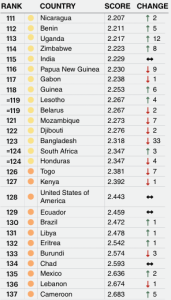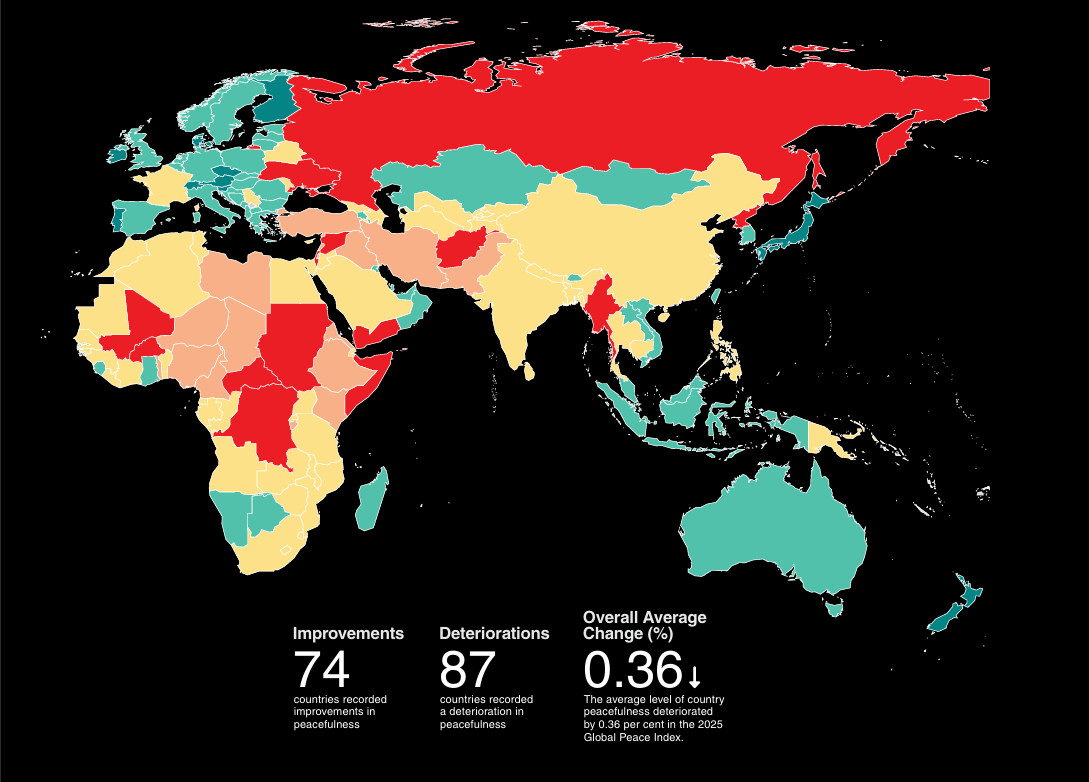Bangladesh’s ranking on the 2025 Global Peace Index (GPI) has plummeted 30 places, bringing the country to 123rd position out of 163 countries. This year’s index, released in June by Sydney-based Institute for Economics and Peace (IEP), highlights a significant deterioration in Bangladesh’s peace and security.
With a score of 2.318, Bangladesh slipped from its 93rd place last year to its lowest ranking since the index was introduced. Despite the steep drop, Bangladesh still fared better than the United States, which was placed at 128th with a score of 2.443.
The report attributed Bangladesh’s decline to mass civil unrest, political instability, and severe crackdowns during widespread protests against the government of then-prime minister Sheikh Hasina in August 2024.

Following deadly demonstrations and allegations of extrajudicial killings, forced disappearances, and mob violence, Hasina eventually resigned and left the country. An interim administration was set up, but power struggles among opposition groups, students, and the military have continued to fuel uncertainty.
According to the Health Ministry, 1,000 people were killed during these protests, while the UN’s human rights body puts the number closer to 1,400.
The GPI noted that instability also rose due to harsh measures by security forces and vigilantism, severely weakening law and order.
Globally, the average level of peace deteriorated by 0.36 percent this year, continuing a 17-year downward trend that began in 2008. War-torn countries like Sudan, the Democratic Republic of Congo, South Sudan, Yemen, and Afghanistan languished at the bottom of the index.
Iceland, with a score of 1.095, retained its title as the most peaceful country in the world — a position it has held since 2008. Ireland, New Zealand, Austria, and Switzerland rounded out the top five. Middle Eastern and North African nations again ranked as the least peaceful region overall, accounting for four of the bottom ten countries.


